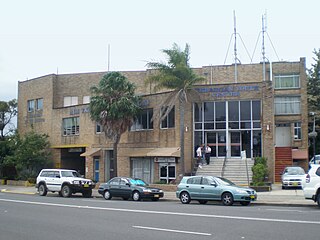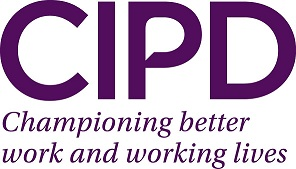
Youth work is a community support activity aimed at older children and adolescents. Depending upon the culture and the community, different services and institutions may exist for this purpose. In general, it provides an environment where young people can engage in informal educational activities. Throughout the United Kingdom, United States, and Canada, youth work is "to facilitate personal, educational, and social development." Through participative activities and coordinated programs, it seeks to enable young people in "gaining a voice, influence, and place in society in a period of their transition from dependence to independence." By nature and design these activities would be inclusive, educative, and empowering, and based on partnership, equality of opportunity, and respecting diversity.

Jobcentre Plus is a brand used by the Department for Work and Pensions in the United Kingdom.
A social enterprise is an organization that applies commercial strategies to maximize improvements in financial, social and environmental well-being. This may include maximizing social impact alongside profits for co-owners.
The NIACE was an educational charity in England and Wales, with headquarters in Leicester and Cardiff plus a subsidiary office in London. The organization, founded in 1921 as the British Institute of Adult Education, was dedicated to advocating for and promoting adult learning. It was the main advocacy body for adult learning in England and Wales and probably the largest body devoted to adult education in the world.
Flexicurity is a welfare state model with a pro-active labour market policy. The term was first coined by the social democratic Prime Minister of Denmark Poul Nyrup Rasmussen in the 1990s.
Social exclusion or social marginalisation is the social disadvantage and relegation to the fringe of society. It is a term that has been used widely in Europe and was first used in France in the late 20th century. It is used across disciplines including education, sociology, psychology, politics and economics.
Person-centred planning (PCP) is a set of approaches designed to assist an individual to plan their life and supports. It is most often used for life planning with people with learning and developmental disabilities, though recently it has been advocated as a method of planning personalised support with many other sections of society who find themselves disempowered by traditional methods of service delivery, including children, people with physical disabilities, people with mental health issues and older people. PCP is accepted as evidence based practice in many countries throughout the world.

The European Social Fund Plus (ESF+) is one of the European Structural and Investment Funds (ESIFs), which are dedicated to improving social cohesion and economic well-being across the regions of the Union. The funds are redistributive financial instruments that support cohesion within Europe by concentrating spending on the less-developed regions.

The Pakistan Institute of Development Economics is a post-graduate research institute and a public policy think tank located in the vicinity of Islamabad, Pakistan.
Community education, also known as community-based education or community learning & development, is an organization's programs to promote learning and social development work with individuals and groups in their communities using a range of formal and informal methods. A common defining feature is that programmes and activities are developed in dialogue with communities and participants. The purpose of community learning and development is to develop the capacity of individuals and groups of all ages through their actions, the capacity of communities, to improve their quality of life. Central to this is their ability to participate in democratic processes.
Kemi-Tornio University of Applied Sciences (KTUAS) was a Finnish University of applied sciences located in Kemi and Tornio. It was founded in 1992 as Kemi-Tornio Polytechnic, a merger of several institutes of higher vocational education in the Kemi-Tornio region of Finland. It was merged with Rovaniemi University of Applied Sciences into Lapland University of Applied Sciences on January 1, 2014.

The Centre for Development Studies (CDS), Thiruvananthapuram, Kerala, India is a premier Social Science research institute. It is also a higher education institution providing M.A. course in applied economics and PhD course in economics. The institute is internationally reputed for being a centre for advanced learning in economics. Its main objective is to promote research, teaching and training in disciplines relevant to development.
EQUAL was a Community Initiative within the European Social Fund of the European Union. It concerned “transnational co-operation to promote new means of combating all forms of discrimination and inequalities in connection with the labour market”. It ran from 2001 till 2007 with a budget of some €3 billion of EU resources, matched by a similar sum from national resources.

The Chartered Institute of Personnel and Development (CIPD) is an association for human resource management professionals. Its headquarters are in Wimbledon, London, England. The organisation was founded in 1913 - it is the world's oldest association in its field and has over 160,000 members internationally working across private, public and voluntary sectors. Peter Cheese was announced in June 2012 as CIPD's new CEO from July 2012.

The Luxembourg Institute of Socio-Economic Research (LISER) is a research centre located in Esch-sur-Alzette, Luxembourg.

Social protection, as defined by the United Nations Research Institute for Social Development, is concerned with preventing, managing, and overcoming situations that adversely affect people's well-being. Social protection consists of policies and programs designed to reduce poverty and vulnerability by promoting efficient labour markets, diminishing people's exposure to risks, and enhancing their capacity to manage economic and social risks, such as unemployment, exclusion, sickness, disability, and old age. It is one of the targets of the United Nations Sustainable Development Goal 10 aimed at promoting greater equality.
The Marchmont Observatory conducts academic research in support of local government policy formation concerning skills, employment and education for adults through networking, the development of learning programmes and research.
TARKI Social Research Institute is an independent research centre located in Budapest, Hungary. TARKI conducts applied socioeconomic research in social stratification, labour markets, income distribution, intergenerational transfers, tax-benefit systems, consumption and lifestyle patterns and attitudes in Hungary and, in the majority of its projects, in Europe. TARKI is closely embedded in international collaborations with major European academic partners in various research projects. Senior staff at TARKI all have PhDs with substantive and methodological interests and many hold professorial appointments at major universities. TARKI has its own fieldwork apparatus, capable of carrying out regular empirical surveys on social structure and on attitudes and of managing large scale international research. TARKI also carries out the Hungarian fieldwork of various high-quality international surveys.
TVET refers to all forms and levels of education and training which provide knowledge and skills related to occupations in various sectors of economic and social life through formal, non-formal and informal learning methods in both school-based and work-based learning contexts. To achieve its aims and purposes, TVET focuses on the learning and mastery of specialized techniques and the scientific principles underlying those techniques, as well as general knowledge, skills and values.







